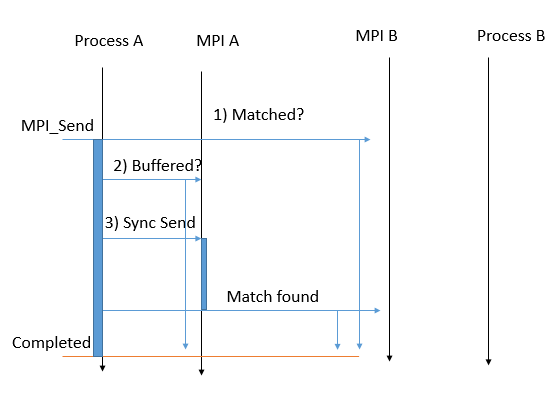
There are different modes of MPI send: MPI_Send , MPI_Isend , MPI_Ssend , MPI_Bsend , and so on. They can be local or non-local, blocking or non-blocking, and synchronous or asynchronous. Their definition and differences are explained here in detail.
This is the standard mode. When it is called, (1) the message can be directly passed to the receive buffer, (2) the data is buffered (in temporary memory in the MPI implementation) or (3) the function waits for a receiving process to appear. See the picture below. Therefore, It can return quickly (1)(2) or block the process for a while (3). MPI decides which scenario is the best in terms of performance, memory, and so on. In any case, the data can be safely modified after the function returns.

It is the synchronized blocking function. When this function returns, the destination has started receiving the message. The moment the destination starts receiving, it signals an ACK to the source.
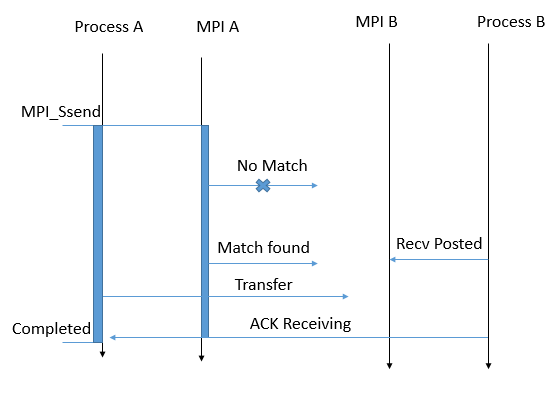
Note, the signal of receiving the message is the difference between MPI_Ssend and MPI_Send .
It is the local blocking send. The programmer defines a local buffer when this function is called. If there is not a matching receive available, the process is blocked until the message is copied into the buffer. Therefore, the programmer can immediately modify the source data after the function returns.
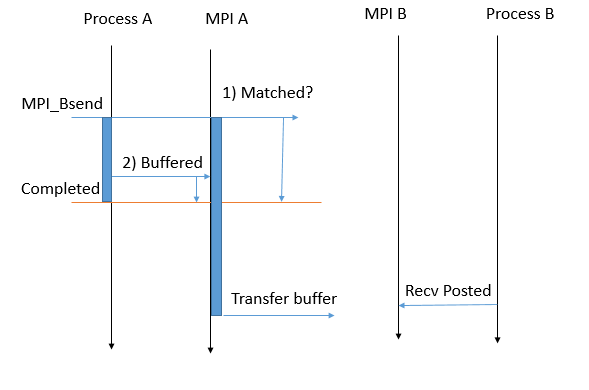
Note, when the function returns the message is probably not sent yet, it will happen concurrently in the background of the process when a matched receive is found.
It is a blocking function the same as MPI_Send , but, it expects a ready destination to receive the message. This can increase the MPI performance if the programmer is sure there is a receive function waiting for this. If no receive posted before, it is erroneous.
It is the non-blocking version of MPI_Send . When this function is called the function returns immediately but runs MPI_Send actions in the background of the process. Therefore, After the function returns, the data must not be modified unless MPI_Test and MPI_Wait confirm MPI_Isend is completed. After the completion, the data is reusable because it either is buffered in MPI or sent to the destination.
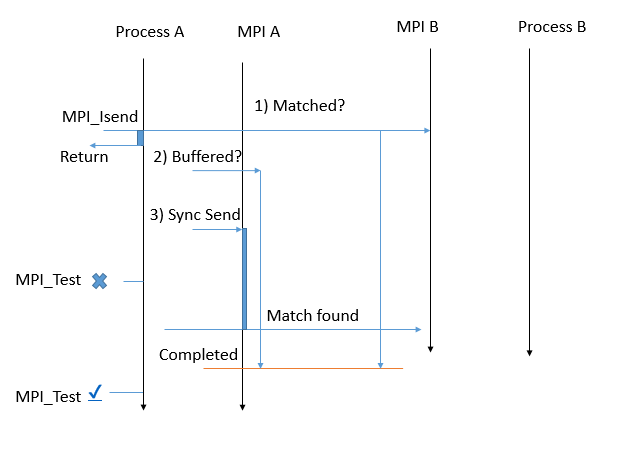
It is the non-blocking version of MPI_Ssend . It returns immediately, but runs MPI_Ssend actions in the background. MPI_Test or MPI_Wait must be used to assess if the function is completed in the background. At that point, not only the message has been sent but also the destination has started to receive the message.
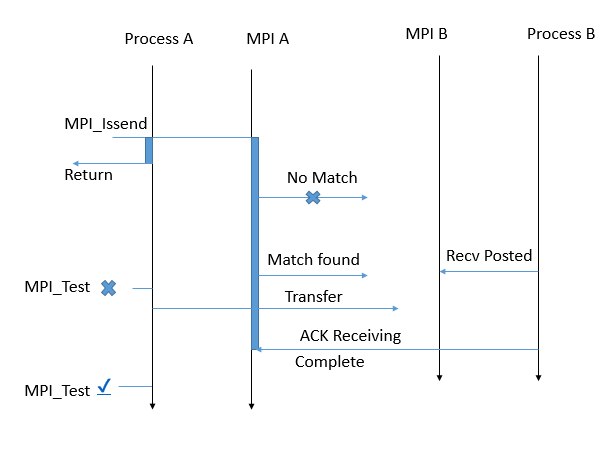
This is the local non-blocking send. It blocks for neither copying the message to the buffer nor sending the message. After the test positive or wait, we can modify the source data because, if it is not sent, it is locally copied to the allocated buffer.
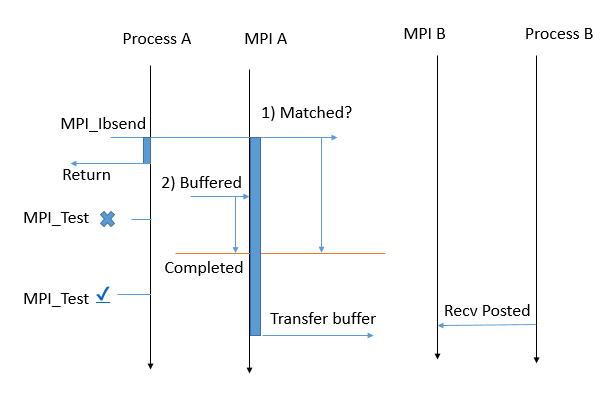
The same as MPI_Rsend , but non-blocking.
It’s hard to give a recipe for all the problems. However, some points can help to choose the right mode:
If you are interested in debugging an MPI code with VS code, see my post here.
I got ideas and codes from the below website(s)